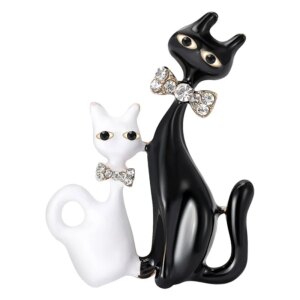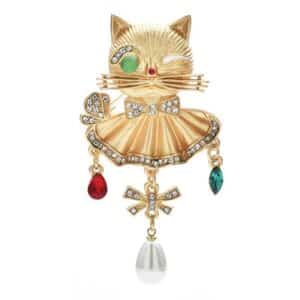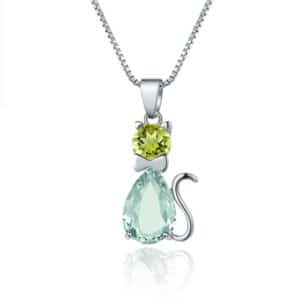Cats yearly shots are a vital part of maintaining your feline friend’s health and well-being. Regular vaccinations protect against common diseases, boost the immune system, and ensure your cat stays happy and healthy. In this article, we will explore the importance of annual cat vaccines, the recommended schedule, and the benefits of a comprehensive wellness plan. By the end, you’ll understand why yearly shots are essential and how they contribute to your cat’s overall health.
At Cat Karma Creations, we are passionate about feline well-being and are here to help you make informed decisions about your cat’s health. If you have any questions or need advice, feel free to contact us or give us a call at (800) 343-1604.
Why Cats Need Yearly Shots
Protection Against Diseases
Cats yearly shots are crucial for protecting your pet against a variety of common and potentially life-threatening diseases. These include feline distemper (panleukopenia), feline herpesvirus, and feline calicivirus. Annual cat vaccines help prevent these diseases by stimulating the immune system to recognize and fight off pathogens. Without proper vaccination, your cat is at a higher risk of contracting these illnesses, which can lead to serious health complications.
Boosting the Immune System
Regular vaccinations play a significant role in boosting your cat’s immune system. When a cat receives a vaccine, their body produces antibodies that help fight off specific diseases. These antibodies remain in the system, providing long-term protection. Yearly booster shots ensure that these antibody levels remain high, maintaining the effectiveness of the vaccine over time. This is particularly important as your cat ages and their immune system may become less robust.
Preventing Serious Health Issues
Preventive cat care, including yearly shots, is essential for maintaining your cat’s long-term health. By vaccinating your cat annually, you can prevent the onset of serious health issues that could otherwise go undetected. Regular vet visits, which often coincide with vaccination appointments, allow veterinarians to perform thorough health check-ups. These check-ups can help identify early signs of illness, such as dental problems, kidney disease, and cancer, which can be treated more effectively when caught early.
Types of Annual Cat Vaccines
Core Vaccines
Core vaccines are essential for all cats, regardless of their lifestyle or environment. These vaccines protect against highly contagious and potentially fatal diseases. The core vaccines for cats include:
- Feline Panleukopenia (FPV): This virus causes a severe and often fatal form of parvovirus in cats.
- Feline Herpesvirus (FHV-1): This virus is a leading cause of upper respiratory infections in cats.
- Feline Calicivirus (FCV): This virus can cause upper respiratory infections and oral disease in cats.
- Rabies: This virus is fatal and can be transmitted to humans. Vaccination is required by law in most areas.
These core vaccines are typically administered as a combination shot, making the vaccination process more convenient for both you and your cat.
Non-Core Vaccines
Non-core vaccines are recommended based on your cat’s lifestyle and risk factors. These vaccines are given to cats that are more likely to be exposed to certain diseases. Non-core vaccines for cats include:
- Feline Leukemia Virus (FeLV): This virus can cause cancer and other serious health issues. It is primarily spread through close contact with infected cats.
- Feline Immunodeficiency Virus (FIV): This virus affects the immune system and is transmitted through bite wounds.
- Chlamydophila felis: This bacteria can cause conjunctivitis and respiratory issues in cats.
- Bordetella bronchiseptica: This bacteria can cause respiratory infections, particularly in cats that are housed in crowded environments.
Your veterinarian can help you determine which non-core vaccines are appropriate for your cat based on their specific needs and lifestyle.
Booster Shots
Cat booster shots are essential for maintaining the effectiveness of vaccines over time. After the initial series of vaccinations, your cat will need booster shots at regular intervals to ensure continued protection. The frequency of booster shots can vary depending on the vaccine and your cat’s individual needs. For example, some vaccines may require annual boosters, while others may be given every three years. Your veterinarian will provide a recommended schedule for booster shots based on your cat’s age, health, and lifestyle.
The Cat Vaccine Schedule
Initial Vaccinations
The initial vaccinations for kittens are typically given in a series of shots, starting at around 6 to 8 weeks of age. These shots are administered every 3 to 4 weeks until the kitten is about 16 weeks old. The initial vaccine schedule for kittens includes:
- 6-8 weeks: Feline Distemper (FPV), Feline Herpesvirus (FHV-1), Feline Calicivirus (FCV)
- 10-12 weeks: Feline Distemper (FPV), Feline Herpesvirus (FHV-1), Feline Calicivirus (FCV), Rabies
- 14-16 weeks: Feline Distemper (FPV), Feline Herpesvirus (FHV-1), Feline Calicivirus (FCV), Rabies, Feline Leukemia Virus (FeLV) if recommended
It’s important to follow this schedule to ensure that your kitten receives the necessary protection against common diseases. Your veterinarian can provide a detailed schedule and answer any questions you may have about the vaccination process.
Booster Schedule
After the initial series of vaccinations, your cat will need booster shots to maintain the effectiveness of the vaccines. The booster schedule for adult cats typically includes:
- 1 year: Feline Distemper (FPV), Feline Herpesvirus (FHV-1), Feline Calicivirus (FCV), Rabies, Feline Leukemia Virus (FeLV) if recommended
- Every 1-3 years: Feline Distemper (FPV), Feline Herpesvirus (FHV-1), Feline Calicivirus (FCV), Rabies, Feline Leukemia Virus (FeLV) if recommended
The frequency of booster shots can vary depending on the vaccine and your cat’s individual needs. Your veterinarian will provide a recommended schedule based on your cat’s age, health, and lifestyle.
Senior Cat Vaccinations
As cats age, their immune systems may become less robust, making them more susceptible to diseases. It’s important to continue regular vaccinations for senior cats to ensure they remain healthy and protected. The vaccination schedule for senior cats may be adjusted based on their health and lifestyle. Your veterinarian can provide a personalized vaccination plan for your senior cat, which may include:
- Annual Feline Distemper (FPV), Feline Herpesvirus (FHV-1), Feline Calicivirus (FCV) boosters
- Annual Rabies boosters
- Feline Leukemia Virus (FeLV) boosters if recommended
- Other non-core vaccines as needed
Regular vet visits are also crucial for senior cats, as they can help identify and manage age-related health issues.
Benefits of a Cat Wellness Plan
Cost-Effective Health Management
A cat wellness plan is a comprehensive approach to managing your cat’s health. It typically includes annual vaccinations, regular check-ups, and preventive care measures. By enrolling your cat in a wellness plan, you can save money on veterinary costs while ensuring that your cat receives the necessary care to stay healthy. Many wellness plans offer discounted rates for vaccinations, check-ups, and other services, making it a cost-effective way to manage your cat’s health.
Regular Health Check-Ups
Regular health check-ups are an essential part of a cat wellness plan. During these check-ups, your veterinarian will perform a thorough examination of your cat to assess their overall health. They will check for signs of illness, such as weight loss, dental problems, and respiratory issues. Regular check-ups also provide an opportunity to discuss any concerns you may have and get expert advice on your cat’s health. By catching health issues early, you can prevent them from becoming more serious and costly to treat.
Preventive Care Measures
Preventive care measures are a key component of a cat wellness plan. These measures include regular vaccinations, flea and tick prevention, dental care, and spaying or neutering. By taking a proactive approach to your cat’s health, you can prevent common diseases and health issues. Preventive care also includes maintaining accurate health records, which are crucial for tracking your cat’s medical history and vaccine schedule. Regular vet visits and preventive care measures can help ensure that your cat stays healthy and happy for years to come.
Popular Quote
“A cat has absolute emotional honesty; human beings, for one reason or another, may hide their feelings, but a cat does not.”
— Ernest Hemingway
Statistical Fact
According to the American Veterinary Medical Association (AVMA), approximately 82% of pet owners in the United States believe that regular veterinary care is important for their pets’ health. This statistic underscores the importance of regular check-ups and vaccinations in maintaining your cat’s well-being. (Source: AVMA, 2021)
Three Tips for Ensuring Your Cat’s Health
1. Stay on Schedule: Follow the recommended vaccination schedule provided by your veterinarian to ensure your cat receives all necessary shots on time. This helps maintain a strong immune system and protect against common diseases.
2. Regular Vet Visits: Schedule regular health check-ups for your cat, even if they seem healthy. Early detection of health issues can make a significant difference in treatment outcomes and overall well-being.
3. Preventive Care: Implement preventive care measures such as flea and tick prevention, dental care, and spaying or neutering. These steps can help prevent common health issues and ensure your cat stays healthy and happy.
Popular Questions About Cats Yearly Shots
1. Are yearly shots really necessary for indoor cats?
Yes, even indoor cats can benefit from yearly shots. Indoor cats can still be exposed to diseases through contact with other pets, humans, or even through contaminated objects. Regular vaccinations help protect your cat from common diseases.
2. What are the side effects of cat vaccines?
While side effects are generally mild and short-lived, they can include lethargy, loss of appetite, and mild fever. More serious side effects are rare but can occur. If you notice any unusual symptoms, contact your veterinarian immediately.
3. How often should my cat get booster shots?
The frequency of booster shots can vary depending on the vaccine and your cat’s individual needs. Your veterinarian will provide a recommended schedule based on your cat’s age, health, and lifestyle. Some vaccines may require annual boosters, while others may be given every three years.
4. Can I skip vaccines if my cat seems healthy?
No, it’s important to follow the recommended vaccination schedule even if your cat appears healthy. Vaccines help prevent the onset of serious diseases that may not show symptoms until they are advanced. Regular vaccinations are a crucial part of preventive care.
5. What is a cat wellness plan?
A cat wellness plan is a comprehensive approach to managing your cat’s health. It typically includes annual vaccinations, regular check-ups, and preventive care measures. By enrolling your cat in a wellness plan, you can save money on veterinary costs while ensuring that your cat receives the necessary care to stay healthy.
Final Thoughts About Cats Yearly Shots
In conclusion, cats yearly shots are a crucial aspect of feline health care. They protect against common diseases, boost the immune system, and ensure your cat stays healthy and happy. By following a recommended vaccine schedule and participating in a wellness plan, you can provide the best possible care for your feline friend. Visit our website to find excellent gifts for cat lovers and follow us on social media for more tips and advice.
If you have any questions or need further assistance, please don’t hesitate to reach out to us at info@catkarmacreations.com or visit our contact form. We are here to support you and your feline companions.
| Feature | Annual Vaccinations | Wellness Plans | Routine Check-Ups |
|---|---|---|---|
| Purpose | Protect against diseases | Comprehensive health management | Early detection of health issues |
| Frequency | Once a year | Year-round | As recommended by vet |
| Benefits | Boosts immune system | Saves money, ensures health | Prevents serious conditions |
| Cost | Varies by vaccine | Typically more cost-effective | Varies by vet and tests |
| Preventive Measures | Prevents common diseases | Includes vaccinations, check-ups, and more | Identifies and treats issues early |
- Annual vaccinations are essential for preventing common feline diseases.
- Wellness plans offer a comprehensive approach to cat health, including regular check-ups and vaccinations.
- Routine check-ups help in the early detection and treatment of health issues, ensuring your cat stays healthy.
- Maintaining accurate health records is crucial for tracking your cat’s medical history and vaccine schedule.
- Regular vet visits provide an opportunity to discuss any concerns and get expert advice on your cat’s health.
- Preventive care, including yearly shots, is a cost-effective way to maintain your cat’s long-term health and well-being.














